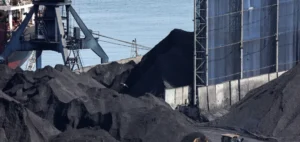Hundreds of miners protested in Sarajevo, demanding payment of wages unpaid for three months. Almir Mandzuka, an affected miner, stresses the lack of wages this year, pointing to the precariousness of their situation. “We haven’t received a single salary this year. It’s a disgrace,” he declares, expressing the urgency of their need.
Pressure on the government
The miners gathered in front of the government of the Bosnian-Croat entity, demanding concrete action. A delegation was sent to negotiate, under threat of a wider mobilization. “If we can’t find a solution, don’t invite us again,” warned Zuhdija Tokic, one of the unions’ representatives, referring to the possibility of massive demonstrations similar to those in 2021.
Authorities’ response
Mines Minister Vedran Lakic has promised a solution for January and February salaries, indicating a potential short-term solution. “If for any reason this should not happen, the mining union will react accordingly,” warns Sinan Husic, president of the mining union, stressing the importance of a swift resolution.
Ecological transition challenges
The Zenica mine, at the center of this crisis, symbolizes Bosnia’s challenges in the face of ecological transition. With the reduction in the number of employees and fears of closures, the transition to renewable energy, although necessary for EU membership, is shaping up to be a difficult one. “If they don’t need this mine anymore, then we need to end this agony,” says Tokic, calling for a more humane approach to the transition.
Bosnia’s coal sector, with 17,000 people employed in predominantly state-owned mines and power plants, is facing a costly transition. Accumulated debt, due in part to unpaid pension contributions, is exacerbating the tension. The situation calls for strategic decisions to alleviate the suffering of workers while respecting ecological commitments.






















